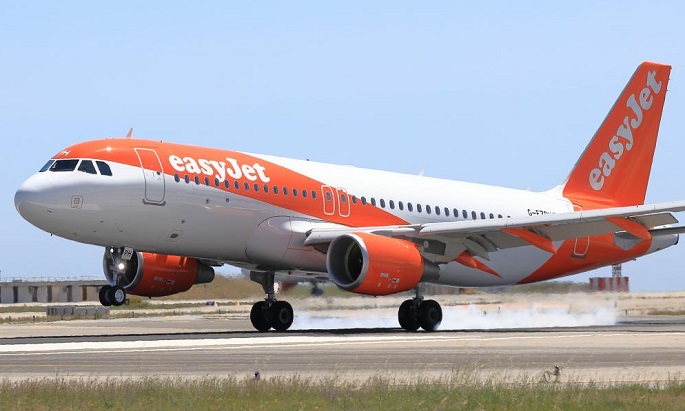Budget airlines expand activities in Germany
Published : 26 Oct 2018, 01:23
Budget airlines have expanded their presence in Germany significantly in the past summer, a report published on Thursday by the German Aerospace Center (DLR), the aeronautics and space research center of the country's federal government, showed.
According to the DLR's regular "Low-Cost-Monitor" report, budget airlines saw widespread growth during the summer months. The Lufthansa subsidiary Eurowings and British Easyjet both acquired numerous aircraft and routes from the bankrupt carrier Air Berlin, while Irish Ryanair developed its operations at Frankfurt Airport into one of its largest hubs in Germany.
During the period under scrutiny, Eurowings was easily able to defend its German market leadership with a 48 percent share and 390 distinct routes. "Eurowings increased its flights by 25 percent against the previous year, and now has 3,200 departures every week," a statement by lead study author Peter Berster of the DLR Institute of Air Transport and Airport Research in Cologne read.
Ryanair came in second place with a market share of 19 percent and a total of 305 connections. "Overall, we listed a record of 6,750 departures per week, of which 35 percent are new services. Ryanair accounted for 1,269 flights per week, and Easyjet for 1,095", Berster noted.
Passengers bound for destinations in Spain, Greece and Italy were especially well served by the expanding network of budget airlines. The share of the low-cost segment in flights from German airports is now around 32 percent, compared to 25 percent in summer 2017.
In terms of the regional distribution of airline activity in Germany, Dusseldorf's main airport was singled out in the DLR report for its impressive growth in its low-cost flight on offer. "Due to a massive increase in services, particularly due to Eurowings, Dusseldorf has reached over 1,000 departures per week, making it the German airport with the largest number of low-cost flights," Berster explained.
By contrast, Germany's largest airport Frankfurt only played a "minor role" in the summer of 2018. This circumstance was attributed by Berster to Frankfurt's distinctive function as a hub for conventional scheduled services and the fact that it already operates at close to full capacity.
DLR further highlighted that the range of cheap flights from Europe generally to overseas destinations which customers could access also grew due to an "influx of new concepts and aircraft models". Norwegian was cited as the front-runner airline in this sub-sector which expanded its total connections between the continent and North America by a further 50 percent.
Growth in the budget airline sector as a whole was accompanied by slight prices increases which largely owed to rising oil prices. "This autumn, the price range is around 38 to 100 euro, compared to 35 to 97 euro in autumn 2017, and 40 to 105 euro in autumn 2016", Berster said.
While most companies succeeded in keeping their prices low, Ryanair's flights were the only ones in the latest DLR analysis whose flights were found to have become cheaper. Despite its increased presence at major airports, Ryanair lowered its average ticket costs again compared to last year, continuing to engage in the intense price-competition which has become the calling card of its chief executive officer (CEO) Michael O'Leary.
However, the study authors also pointed out that the Irish company had simultaneously changed its hand luggage rules so that passengers can no longer carry up to 10 kilograms free of charge.


